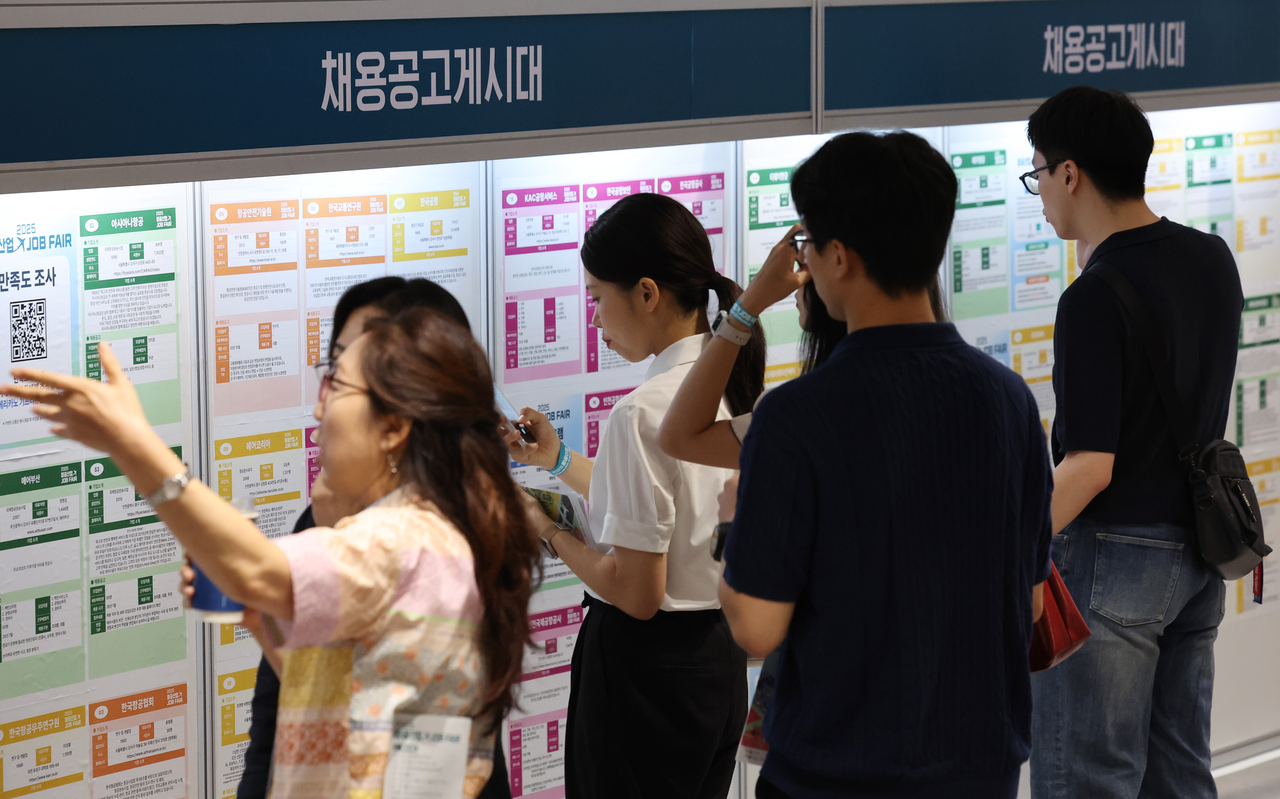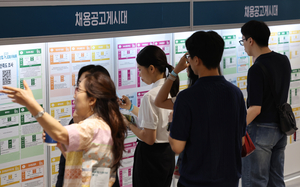 Young Koreans attend a job fair in Seoul on Sept. 16. (Yonhap)
Young Koreans attend a job fair in Seoul on Sept. 16. (Yonhap)
South Koreans in their 20s saw their inflation-adjusted real incomes grow by less than 2 percent per year on average from 2014 to 2024, the lowest among all age groups during that period, a report showed Monday.
Real income, which reflects the actual purchasing power of earnings, increased by just 1.9 percent per year over the decade for 20-somethings, significantly lagging behind other age groups, according to the report by the Federation of Korean Industries.
It was lower than the 5.1 percent recorded for those aged 60 and older, 3.1 percent for those in their 30s, 2.2 percent for those in their 50s, and 2.1 percent for those in their 40s.
Real monthly income for 20-somethings rose from 1.76 million won in 2014 to 2.12 million won in 2024, the second lowest among all age groups. The lowest earners were those aged 60 and above, whose income rose from 1.02 million won in 2014 to 1.7 million won in 2024.
South Korea recently saw a substantial decrease in the employment rate for people in their 20s, which paralleled a rising employment rate for those at the legal retirement age and older. Recent data from Statistics Korea showed that 60 percent of those aged 60 and older were working in April this year, which was just a hair below the 60.3 percent for the 20-29 group.
But the FKI data indicated that the employment rate was not the direct cause of low income growth for young Koreans. From 2014 to 2024, the employment rate for 20-somethings actually increased from 57.4 percent to 61 percent.
The report pointed out that the proportion of people in their 20s working as “irregular workers” — those under non-guaranteed employment contracts — increased from 32 percent to 43.1 percent in the same period. This means even though more young people were working than 10 years earlier, the quality of their jobs is substantially lower.
“Regular” South Korean workers sign contracts that guarantee employment until the legal retirement age, and those without a job guarantee are often face lower wages and forms of discrimination in the workplace. April data from Statistics Korea showed that irregular workers earned about 66 percent of the amount earned by regular workers in 2024.
The FKI data also showed that real income growth for all age groups since 2019 was substantially lower than in the five years prior to 2019. Real income growth in the 2019-2024 period ranged from 1.1 percent for 20-somethings to 3 percent for those aged 60 and above.
minsikyoon@heraldcorp.com

